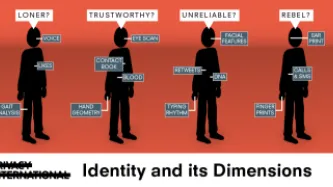Search
Content type: Case Study
… 14th December 2018 Photo credit: Douglas Fernandes The exclusion caused by ID can have a devastating effect on …
Content type: Case Study
… 14th December 2018 Photo credit: Douglas Fernandes The exclusion caused by ID can have a devastating effect on …
Content type: Long Read
… systems. When it comes to understanding inclusion and exclusion, at the centre of this is a myth: that an identity … more at risk of being tracked or profiled. Identity and exclusion Identity documents and cards can be sources of exclusion in different ways. Hurdles to access and use ID …
Content type: News & Analysis
… a civil liberties question that we will raise later.) This exclusion has a discriminatory impact on civil rights, as ID …
Content type: Long Read
… financial products; they also pose a risk of creating new exclusions and discrimination. As Privacy International’s …
Content type: Long Read
… raises concerns about how the system still gives rise to exclusion. We are seeing similar identification schemes … often framed as the silver bullet to marginalisation and exclusion, yet they may in fact increase exclusion and discrimination and targeting . We are …
Content type: Long Read
… 16.9, but that it also builds a system for surveillance and exclusion. It is thus essential to critically engage with … some inherent problems. One of these problems is that of exclusion. There is an inherent idea within much of the … The difficulty here is that it is always the case that exclusion from the system is, in practice, an inevitability. …






